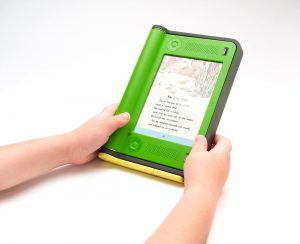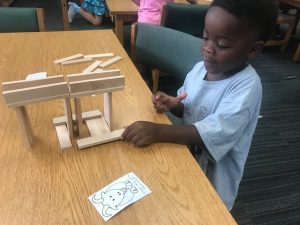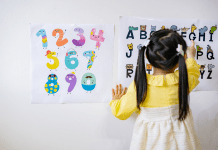April is School Library Month, a time set aside to celebrate the essential role that strong school libraries play in transforming learning. With the switch to at-home learning, our school libraries are not closed, in fact, they are open 24/7 and better than ever! Here are ways you can utilize your school library, and your school librarian during this time of at-home learning.
Ways to use your school library
- Get to know the e-Book catalog: Most school district libraries provide access to eBooks. These digital copies of books range from award winners and bestsellers to nonfiction books that support your child’s curriculum. School librarians work to ensure that books are available for a variety of reading levels and interests. You obviously don’t need to leave your house to get them and with digital lending, you can access the book instantly. No need to worry about the book being lost, damaged, or late. Once the lending period is up, the book is automatically returned. If your child has exhausted the books from his personal library, reach out to your school librarian and get information on how to access your school’s eBook catalog.

- Explore the school’s library databases: Do your kids love to “search up stuff” on Google? Children are naturally curious and want to find answers to their questions. This skill should be encouraged but with caution. The internet is a big, and sometimes scary, place for a child. Children need guidance when searching for information online. Many school libraries have subscriptions to amazing databases that you can access from home. A database is what our ancestors called “encyclopedias”. They take the place of the reference section of the library and provide 24/7 access to information. You can trust library databases to provide age-appropriate authoritative information (as opposed to “fake news”). The sites are reliable, user-friendly and interactive. Many of them have features such as text to speech (for emerging or struggling readers) and provide information on just about every academic subject area. Databases are free for you to use. You can find your school library databases through your school library’s website or the school district’s site. You will most likely need login credentials. Contact your school librarian for more information.
- Book Recommendations: Nothing brings more joy to school librarians than connecting readers with just the right books. Whether your child is a reluctant reader or an enthusiastic one, your school librarian can help you discover a good fit book. Librarians have insider information about the newest books as well as knowledge about the classics. We have working relationships with book vendors, authors, and even publishers. If you are looking for suggestions for books your children will love, contact your school librarian. She may offer book trailers or book talks (these are like commercials for books), or he might have created a curated list of books based on any number of factors (reading levels, topics, best sellers, award winners). School librarians are information professionals and we love what we do! It is our passion to connect our patrons with the information and resources they need. Don’t be afraid to reach out!
 Makerspace: You may have heard your child come home talking about what they created in the school library makerspace. A makerspace is an area of a room that stores tools and supplies, specifically for the purpose of giving a person the materials they need to “enter with an idea and leave with a complete project”. Kids love to “tinker” and a makerspace allows them to foster their creativity and curiosity (without getting into trouble by a grownup for breaking something). With the school library as the epicenter of ideas and information gathering, it is the perfect place to house a makerspace. If your child loves her makerspace days and is now missing that component of the school, contact your school librarian for activities. This link gives you ways to easily create makerspace activities at home.
Makerspace: You may have heard your child come home talking about what they created in the school library makerspace. A makerspace is an area of a room that stores tools and supplies, specifically for the purpose of giving a person the materials they need to “enter with an idea and leave with a complete project”. Kids love to “tinker” and a makerspace allows them to foster their creativity and curiosity (without getting into trouble by a grownup for breaking something). With the school library as the epicenter of ideas and information gathering, it is the perfect place to house a makerspace. If your child loves her makerspace days and is now missing that component of the school, contact your school librarian for activities. This link gives you ways to easily create makerspace activities at home.- Curriculum Assistance: Before they entered the world of library land, school librarians were classroom teachers. We have graduate degrees in library science and our courses consisted of studies in the best educational practices. As school educators, we receive the same ongoing professional development courses that your child’s teacher attends, plus additional training in library science and technology. In other words, we are teachers too, except our classroom is the library and our class size exists of the entire school population. It’s a misconception that the only topic school librarians specialize in is reading. As educators, school librarians work to maintain knowledge in all subjects and we enjoy collaborating on lesson design in a variety of curriculum areas! One of my favorite things to do is co-teach lessons with the educators on my campus. I have helped create activities ranging from sixth-grade economics lessons to kindergarten science. If your child is struggling in an academic area, by all means, contact their classroom teacher first. But don’t be afraid to reach out to the school librarian as well for additional resources such as online tutorials or extension lessons.
I challenge you to take the opportunity to utilize your school library and get to know your school librarian! What are some awesome things your child’s school library offers?













